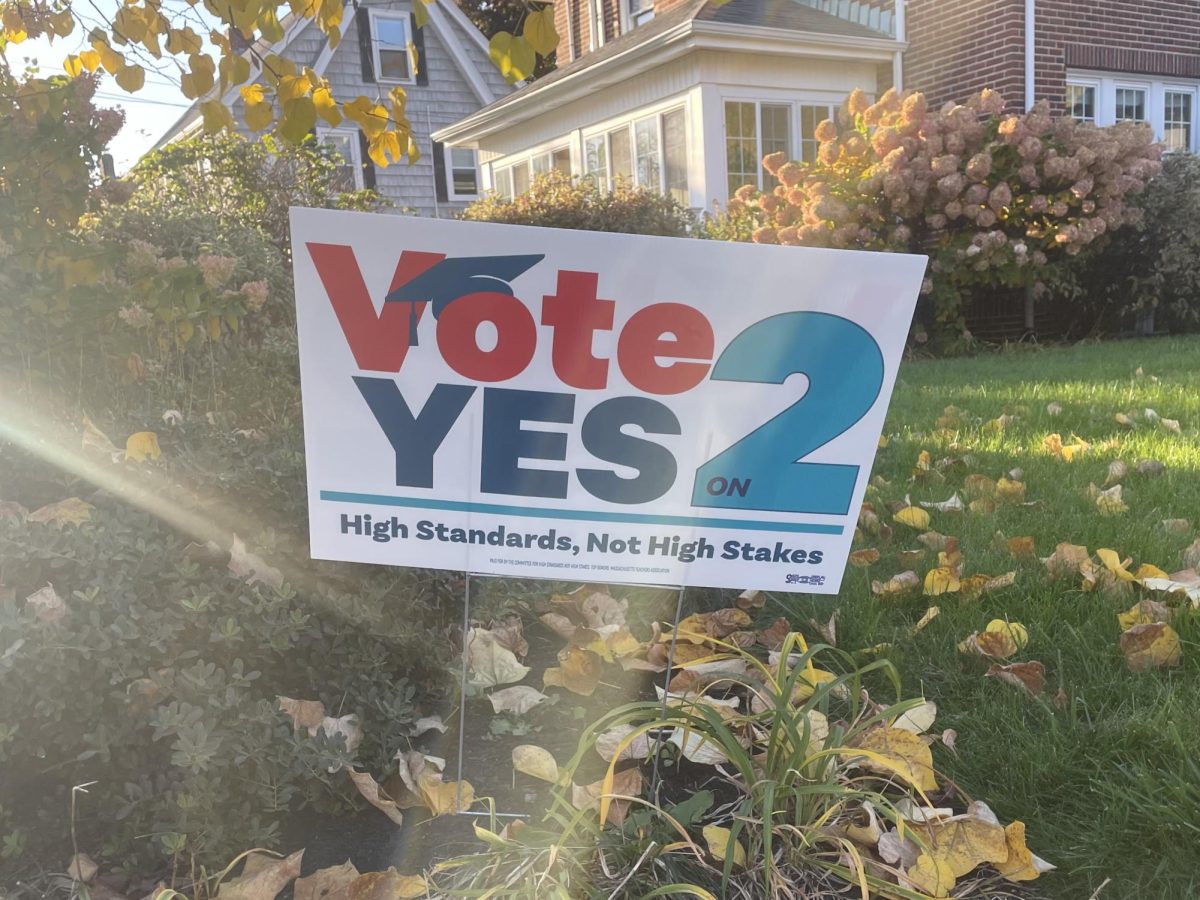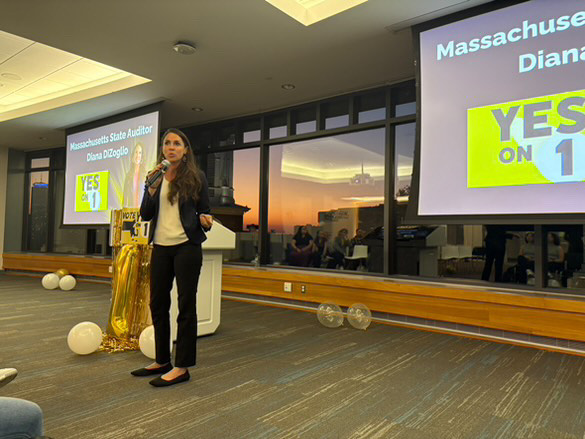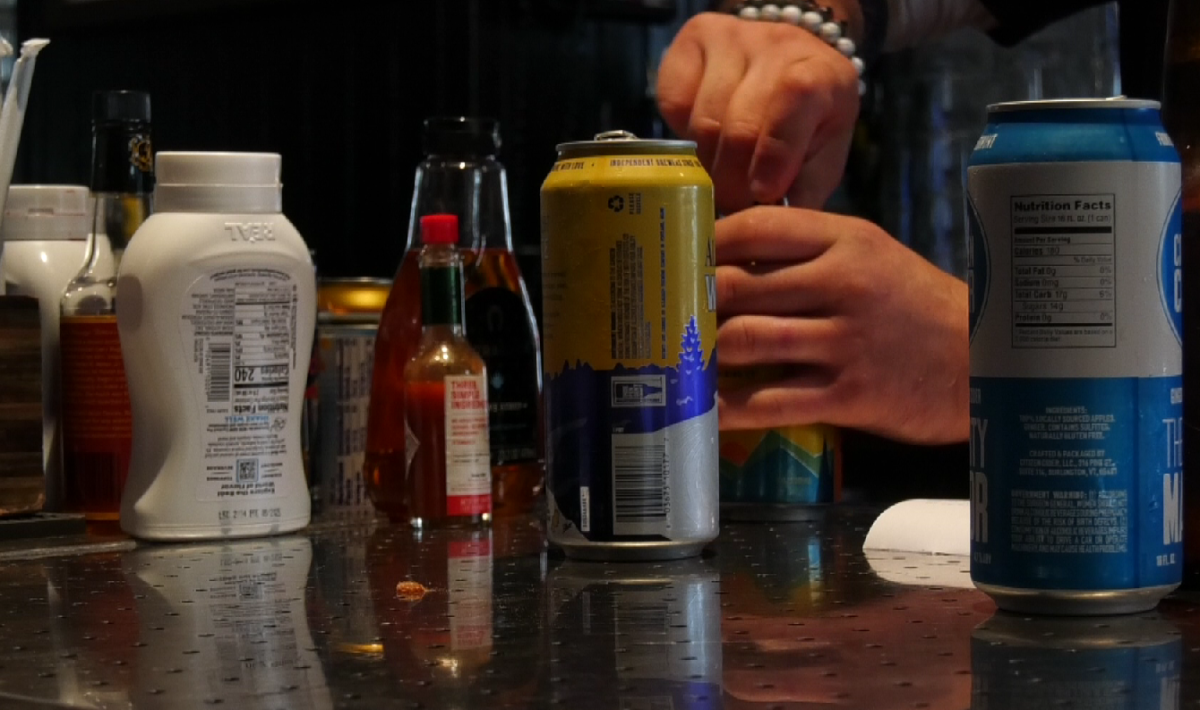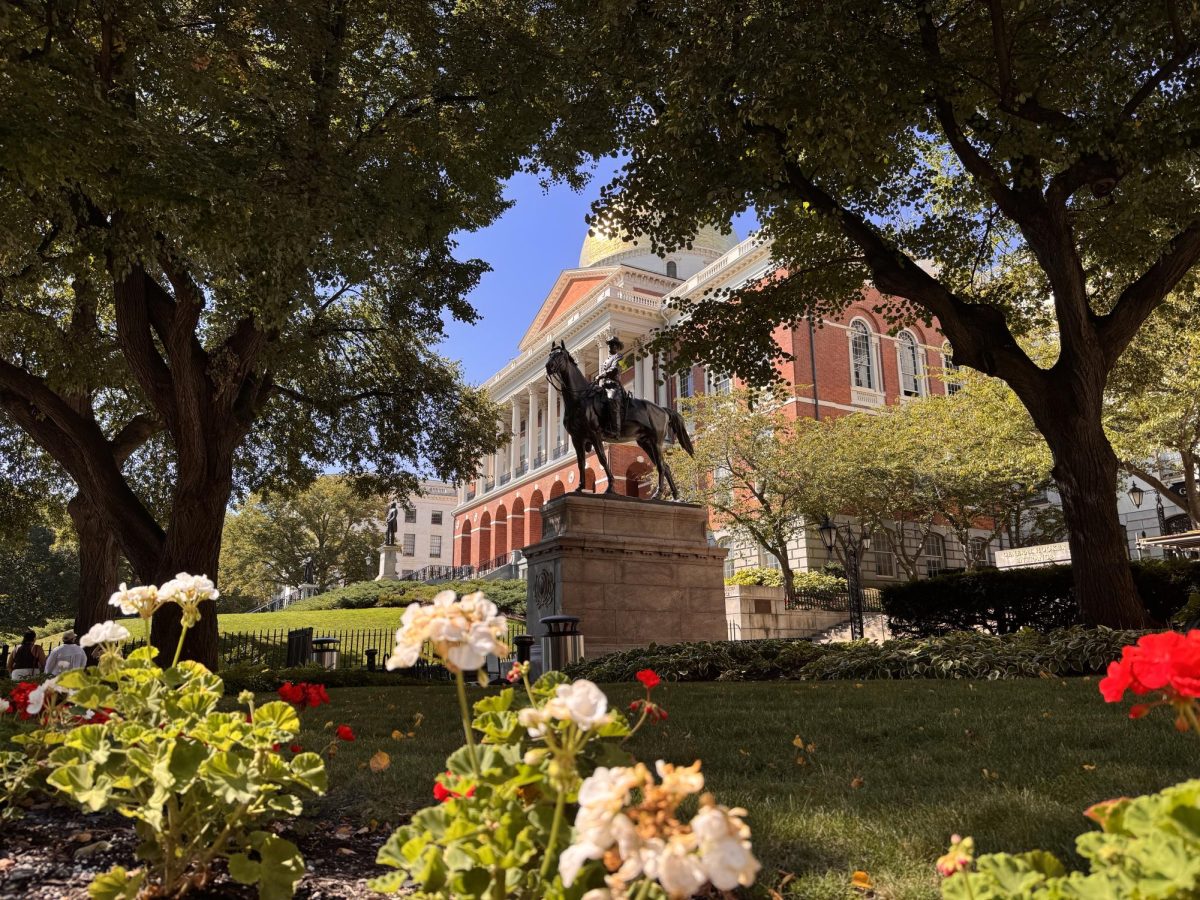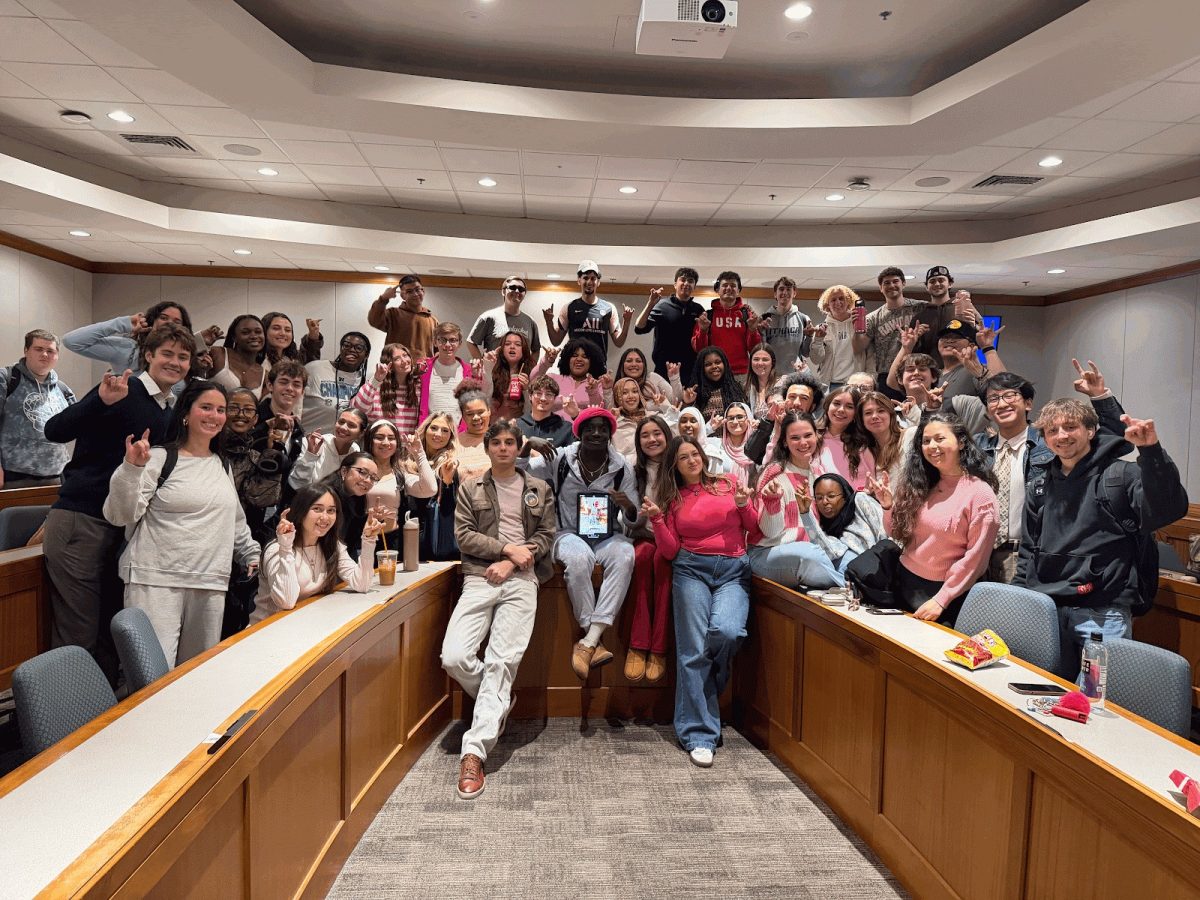Massachusetts voters will decide whether the Massachusetts Comprehensive Assessment System should remain a high school graduation requirement for students as one of five ballot questions in the November election.
The MCAS is the standardized test that measures the academic achievement of public school students across the state. It has been a graduation requirement since 2003 and was introduced to schools in 1993 as part of the Massachusetts Education Reform Act.
According to current regulations, grade 10 students must receive a qualified score in three sections of the test —English, mathematics and science and technology/engineering — to graduate.
Question Two of the state ballot seeks to repeal the MCAS requirement from high schools across the state.
A “yes” vote would allow students to graduate high school without passing the MCAS test. A “no” vote would maintain the existing law and, therefore, keep the MCAS as a graduation requirement.
However, even if this measure passes, the MCAS will not be totally eliminated. Students from grades three to eight, as well as grade 10, would still have to take these standardized exams for data collection and performance assessment.
They are also required to complete the school district’s coursework standards to graduate.
The main proponent behind this question is the Massachusetts Teachers Association, representing 117,000 educators across the Commonwealth.
According to the Massachusetts Office of Campaign and Political Finance, as of Oct. 1, the ‘Yes on 2’ campaign has raised a total of about $7.6 million.
The MTA has funded the entire campaign. The MTA has used it so far for staff time, ads and to get outside contractors’ support.
Deb McCarthy, the vice president of the MTA, said that as an educator in Hull for more than 25 years, she has seen a lot of problems caused by MCAS as a graduation requirement.
“Standardized tests do not provide a fair or accurate measure of all students,” said McCarthy. “A one-time, one-size-fits-all test should not prevent someone from graduating if the student has successfully completed his or her coursework.”
According to McCarthy, the MCAS requirement has caused educators at all grade levels to focus too much on helping students pass this standardized test. Therefore, the passage of Question Two would allow teachers to diversify their instruction methods in the classrooms.
“Once the high stakes are removed from MCAS, our students will benefit from being able to do more creative, hands-on learning,” said McCarthy.
She also said that eliminating the MCAS as a graduation requirement would not lead to lower educational standards in Massachusetts since the exam would still be given.
According to McCarthy, the educational standards in Massachusetts can still be maintained as the state has uniform academic standards that are the foundation of teacher preparation programs, curriculum frameworks, student grading and educator evaluations.
“We believe that it is more appropriate to use MCAS as a diagnostic tool,” said McCarthy.
As for Juan Jaramillo, Revere city councilor-at-large, he said that the MCAS requirement currently lowers the educational standards in Massachusetts.
“I think that right now, we’re actually underserving students,” Jaramillo said. “We’re measuring the ability of a student to take a test based on a curriculum, and we’re forcing educators to educate to the mechanisms of taking a test that is tied to students’ graduation.”
Jaramillo also said that untying the nexus between graduation and the MCAS will have various benefits for students and the state educational system.
“We’re gonna have more comprehensive and holistic education, and students are going to be more prepared, not just for their career paths, but for day-to-day life,” said Jaramillo.
He stated that voting “yes” will help accurately measure communities and provide additional support to students.
“We remove the barrier that is the actual thing that is keeping students away from going to trade school and college because if they don’t pass, they can’t get a high school diploma,” Jaramillo said.
State Sen. Jason Lewis also wrote on X that he will vote “yes” for Question Two in the November election.
“Standardized tests are imperfect and cannot measure the full scope of skills, knowledge and competencies that we want to develop in our young people and are critical for their future success,” Lewis wrote.
He also mentioned that the MCAS requirement can cause students with disabilities and non-native English speakers to face particular difficulties.
“Moving away from a graduation requirement based on standardized test scores and replacing it with course requirements and other richer student learning experiences would also align Massachusetts with the vast majority of other states,” Lewis wrote.
In order to get this question passed, there are educators and supporters from the Vote Yes on Two campaign volunteering at phone banks and participating in neighborhood canvasses across the state every day.
“We have had countless conversations with people who support this campaign because either they or their children have been ill-served by the MCAS graduation requirement,” said McCarthy.
In opposition to the MTA’s effort, the group called Protect Our Kids’ Future: Vote No on Question 2 launched a $250,000 advertising campaign in July. This group is a coalition of teachers, parents, students and others who want the MCAS test to remain as a high school graduation.
According to the OCPF, as of Oct. 1, the group has received a total of about $1.5 in contributions. Of that amount, they have spent more than $1.2 million to help fight to keep the current mandate of having the MCAS as a graduation requirement.
Boston Schools Fund is a part of this coalition.
BSF Founder and Chief Executive Officer Will Austin said that in order to ensure the same public education for all students from different backgrounds, the state has established a common set of standards and a redistributive tax system to ensure schools and students receive all the resources they need. Therefore, if Question Two passes, it will entail various consequences.
“Eliminating that commonality will result in inequity,” said Austin. “It means that different kids will receive different things in different places, and I just don’t think that’s fair.”
Another opponent to Question Two is Ed Lambert, an executive director of the Business Alliance for Education. He said that eliminating the MCAS requirement would cause the state to go back to where it was 30 years ago.
According to Lambert, before the passing of the Education Reform Act of 1993, many students in less wealthy communities, particularly students of color or English language learners, were held to lower standards.
“People believed that they couldn’t achieve, which was really not fair and inequitable,” Said Lambert.
Therefore, the implementation of the single statewide standard has brought many positive outcomes for the state educational system.
“Our graduation rates have gone up. Our dropout rates have gone down, and all groups of students have seen their student achievement increase,” he said.
According to a report from Scholaroo, in 2023, Massachusetts had the third lowest dropout rate in the country. Additionally, the state’s educational system was also ranked the first in the nation.
“Because of these achievements, the MCAS requirement is a very good thing for students,” Lambert said. “It gives parents and students good information about whether or not their student is ready for college and career.”
The Annenberg Institute at Brown University found a correlation between one’s MCAS score and their future success in their July report.
The research shows that the MCAS is a predictor of students’ long-term achievement. Even when comparing students with the same demographic profile who earned the same GPA at the same high school, they found that those who got higher MCAS scores had better outcomes.
“So it is a valid test,” said Lambert. “It’s teachers who come together on a regular basis to determine what those standards should be, and by all appearances, they’ve been getting it right.”
With all those benefits and positive numbers, Lambert said that it is not true to argue that the MCAS does not reflect students’ ability or future potential. He stated that even when the test is not perfect, the solution is not to eliminate its use as a graduation requirement.
“That’s not logical,” said Lambert. “Their effort then should be to try to improve or expand what is measured.”
Austin shares the same stance. He said that if the MCAS does not reflect a student’s well-being, so do other kinds of tests and assessments.
“That’s a false choice,” said Austin. “I just feel like it’s a nice rhetorical argument that doesn’t really actually mean much in practice.”
Another proponent from the Vote No on Question Two campaign is Keri Rodrigues, the president of the National Parents Union and founder of Massachusetts Parents United.
She said that as a leader of a national organization, she has seen how MCAS requirements benefit the state educational system.
“Massachusetts is actually the gold standard because we have the MCAS,” said Rodrigues. “We do have this rigorous standard to make sure we’re keeping the promise of proficiency to our kids so that they can be prepared for economic mobility.”
In terms of stress, Rodrigues said that as a mother of five, the test that really stresses her sons out more than anything is the Massachusetts driving test, not the MCAS test.
“You wouldn’t imagine a scenario where we would say getting a driver’s license is really stressful, so we’re not gonna make the 10th graders take that test anymore and assume that they’re safe to drive,” she said. “That would be crazy. We would never do that.”
However, Rodrigues said that it is exactly what Massachusetts would do if Question Two passes.
On the student side, Caden Brown, a high school senior at the O’Bryant in Roxbury, said he supports voting “yes” on Question 2.
Brown said that he and his peers view the MCAS as more of a pain than a real assessment of their abilities.
“The MCAS is a test we all just try to get over with as fast as possible to get back to our regular schooling,” he said.
Brown also said that the test was too long and too generalized.
“We dread the day of the MCAS,” he said. “Nobody even cares for the test.”
Joseph Jones, a 29-year-old Tennis Coach from Leominster, Massachusetts, also supports this ballot initiative.
According to Jones, the MCAS requirement contains various limitations.
“I don’t think standardized testing is a good evaluation of intelligence,” he said.
Jones said that in most jobs, people can consult resources or colleagues, unlike the rigid structure of standardized tests like the MCAS.
“The whole school system is just repeating what you’re told … you won’t need to use most of it in the future,” Jones said.
According to a recent Suffolk University/Boston Globe poll released Oct. 8, 57.8% of voters said they would vote “yes” on this question, compared to 36.8% who said they would vote “no.” However, 4% of voters are currently undecided.
Meaghan Mirasolo-Allen, a teacher at Revere High School, said she has stayed neutral on this question. She said that the state should neither keep nor remove this graduation requirement.
“Eliminating the MCAS requirement without something else in place isn’t a good idea,” she said. “There needs to be some standardized measurement of skills to graduate; otherwise, it cheapens the diploma.”
In late September, the MTA began running a misleading advertisement about Question 2.
In this financed TV ad, they asserted that it “replaces the high-stakes MCAS graduation requirement.”
However, according to the Secretary of the Commonwealth’s Office on the Massachusetts election, Question Two “would eliminate the requirement that a student pass the Massachusetts Comprehensive Assessment System (MCAS) test” in order to graduate from high school.
Currently, no plan has been put in place for what would replace MCAS. Yet, the MTA mentioned there is a replacement for the current test rather than repealing it from the graduation requirement.
If this ballot initiative passes, it will be applied to students who are going to graduate from high school in spring 2025.
To cast a vote on Question Two, polls will be open Nov. 5, from 7 a.m. to 8 p.m. To find a voting location, click here.


